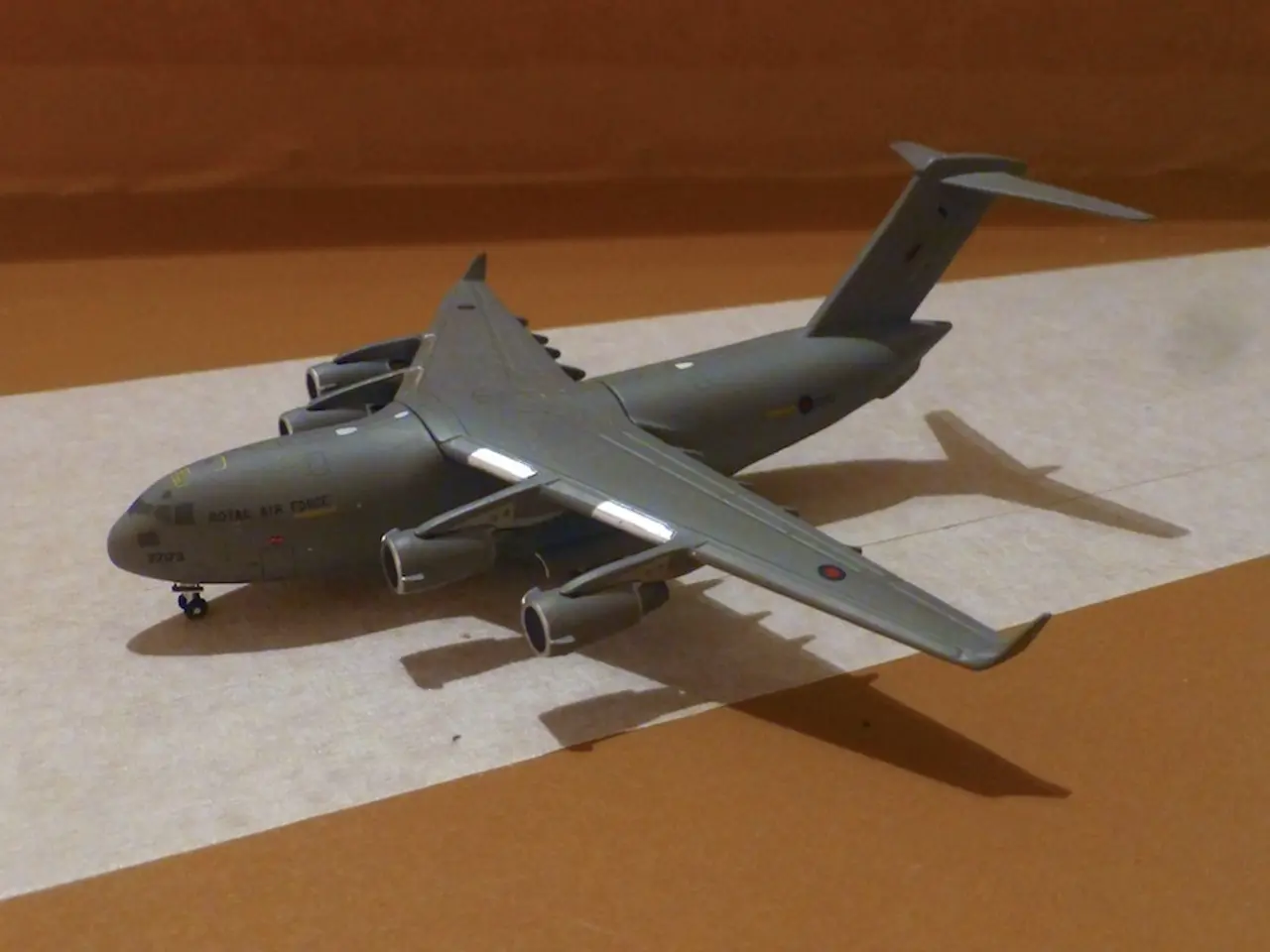Sky Electrification Unveiled
In a significant step towards the hybridisation of the transport sector and aircraft decarbonisation, Airbus has flight tested a hybrid-electric system called the Engine Back-up System. This system is seen as a forerunner for larger hybrid propulsion systems in the future.
Airbus is taking a 'modular' approach to hybridisation, using sets of technology building blocks called modules. This strategy allows for flexibility and scalability in the development of hybrid-electric propulsion systems.
The company is also exploring partnerships with a number of aerospace suppliers who provide electrical systems, with discussions centring around solid-state batteries. Solid-state batteries offer several advantages, including improved safety, faster charging, and longer lifespan compared to traditional lithium-ion batteries.
The energy density of current-generation batteries, such as lithium-ion, is significantly lower compared to kerosene and hydrogen. However, advancements in solid-state battery (SSB) technology are aiming to close this gap. Breakthroughs in 2025, such as the development of "True All-Solid-State Battery" technologies by companies like Microvast Holdings, promise to enable electric aircraft with greater range, payload flexibility, and reduced safety risks.
However, challenges remain in deploying SSBs for aircraft electrification. These include achieving optimal power-to-weight ratios, manufacturing scale-up, materials and cost, regulatory and certification hurdles, and supply chain constraints. Integrating SSBs within hybrid-electric propulsion architectures and managing thermal and mechanical stresses during flight are active areas of research.
Airbus is not alone in its pursuit of solutions to these challenges. The company is collaborating with players in other sectors, such as the automotive industry, to find answers. A notable example is the partnership agreement with the Renault Group to advance research into energy storage and management.
In another collaborative project, Airbus, Daher, and Safran are working together on a project called Ecopulse. Based on a light aircraft, this project aims to increase knowledge of distributed propulsion systems and multiple power source management.
Despite these challenges, the potential benefits of hybrid-electric propulsion are significant. Hybrid-electric propulsion could reduce aircraft CO2 emissions by up to 10% for helicopters and up to 5% for fixed-wing aircraft. This could be a crucial step in meeting the 5% emission reduction target that Airbus and engine manufacturers must jointly develop a new, more efficient class of gas turbine to achieve.
In the long term, the widespread adoption of SSBs in aircraft electrification could revolutionise the aviation industry, offering greater range, payload flexibility, and reduced safety risks for electric aircraft. While 2025 marks a pivotal year with promising breakthroughs bringing SSBs closer to commercial electric aviation, challenges in manufacturing, cost, certification, and system integration remain before widespread adoption is achieved.
Airbus is leveraging technology building blocks, known as modules, in a modular approach to hybridisation, seeking to improve the safety, charging speed, and lifespan of their hybrid-electric propulsion systems by partnering with aerospace suppliers focused on solid-state batteries.
Breakthroughs in 2025, such as the development of "True All-Solid-State Battery" technologies by companies like Microvast Holdings, may enable electric aircraft with greater range, payload flexibility, and reduced safety risks, revolutionizing the aviation industry in the long term.




